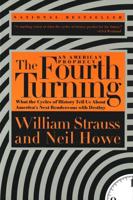Publisher's Synopsis
On August 2, 1808 a British army of 14,000 men began landing north of Lisbon under the command of Sir Arthur Wellesley, the future Duke of Wellington. They were coming to assist the Portuguese, Britain's oldest ally, to liberate their country from its French occupiers. Within a month Wellesley was to win two victories over the French at the battles of Rolica and Vimeiro. General Andoche Junot, the French commander, was forced to surrender and evacuate Portugal. Rene Chartrand examines the first of Wellesley's string of victories in the Peninsular War.
Napoleon, fed up with Portugal's non-compliance to his Continental System which was aimed at isolating Britain, ordered the inasion of Britains oldest ally in November 1807. The French occupation was harsh in 1808 the Portuguese revolted and some of the French occupiers fled in confusion. In August 1808, a 14,000-man British army landed at Figura da Foz, (which had been recaptured by the students of Coimbra University) under the future Wellington, Sir Arthur Wellesley. General Andoche Junot had 25,000 French troops in Portugal but these were scattered trying to contain the Portuguese. A 6,000-strong French force under General de Laborde was sent against the British. Wellesley outmanoeuvred his opponent and, at Rolia on 17 August, defeated the French. The surprized French mustered a further 13,000 men and hoped to defeat the British quickly as more troops were arriving from England. Junot met Wellesley (16,000 British, 2,000 Portuguese) at Vimeiro on 21 August. The French attacks were badly conceived and disjointed, and were routed by Wellesley's army. With the arrival of General Dalrymple to take overall command the notorious Convention of Cintra was negotiated, which allowed for the defeated French troops to be evacuated on British ships with baggage and loot intact rather than being forced to surrender. This agreement which Wellington accepted only with the greatest reluctance, led to the disgrace of his superiors. Nevertheless, the shock-waves of Vimeiro were felt across Europe. The previously invincible French had been defeated by Wellesley's Anglo-Portuguese army, Portugal liberated, and a vital foothold secured from which to prosecute the war in the Peninsular.










